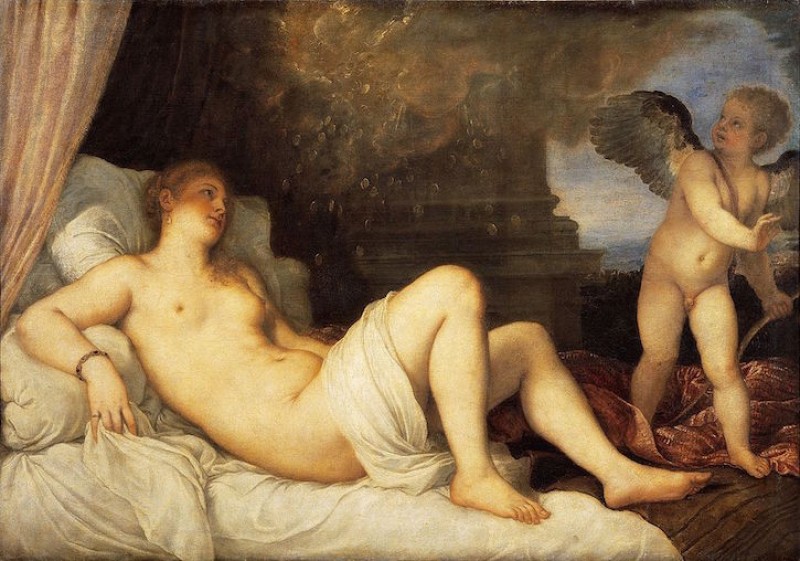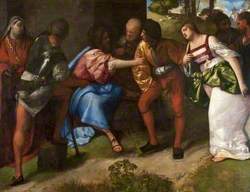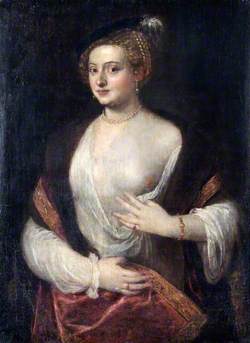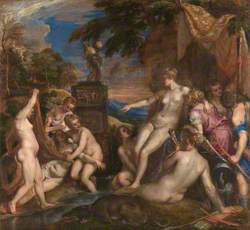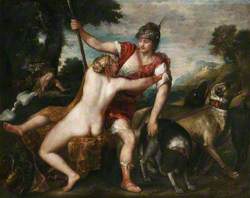How you can use this image
This image can be used for non-commercial research or private study purposes, and other UK exceptions to copyright permitted to users based in the United Kingdom under the Copyright, Designs and Patents Act 1988, as amended and revised. Any other type of use will need to be cleared with the rights holder(s).
Review the copyright credit lines that are located underneath the image, as these indicate who manages the copyright (©) within the artwork, and the photographic rights within the image.
The collection that owns the artwork may have more information on their own website about permitted uses and image licensing options.
Review our guidance pages which explain how you can reuse images, how to credit an image and how to find images in the public domain or with a Creative Commons licence available.
Buy a print or image licence
You can purchase this reproduction
If you have any products in your basket we recommend that you complete your purchase from Art UK before you leave our site to avoid losing your purchases.
Notes
Add or edit a note on this artwork that only you can see. You can find notes again by going to the ‘Notes’ section of your account.
One of the most famous paintings in the National Gallery, Titian’s Bacchus and Ariadne illustrates a story told by the classical authors Ovid and Catullus. The Cretan princess Ariadne has been abandoned on the Greek island of Naxos by Theseus, whose ship sails away in the distance. Bacchus, god of wine, falls in love at first sight with Ariadne and leaps from his chariot towards her. Later, Bacchus throws Ariadne’s crown into the air, immortalising her as the constellation Corona Borealis, represented by the stars above her head. This painting is one of a celebrated series by Giovanni Bellini, Titian and the Ferrarese artist Dosso Dossi, commissioned for the Camerino d‘Alabastro (Alabaster Room) in the Ducal Palace, Ferrara, by Alfonso I d’Este, Duke of Ferrara.
Title
Bacchus and Ariadne
Date
1520-3
Medium
Oil on canvas
Measurements
H 176.5 x W 191 cm
Accession number
NG35
Acquisition method
Bought, 1826
Work type
Painting
The National Gallery, London
Trafalgar Square, London, Greater London WC2N 5DN England
Stories
-
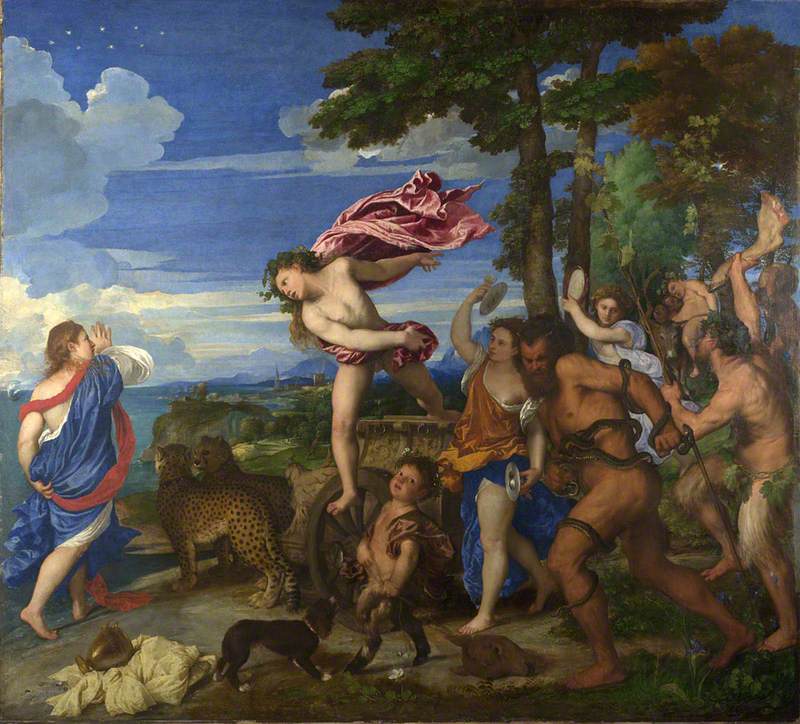 Write on Art: 'Bacchus and Ariadne' by Titian
Write on Art: 'Bacchus and Ariadne' by TitianCatherine Jamieson
-
 Write on Art: the winners 2018
Write on Art: the winners 2018Andrew Ellis and Sarah Turner
-
 Write on Art: Titian's 'Bacchus and Ariadne'
Write on Art: Titian's 'Bacchus and Ariadne'Maryam Khan
-
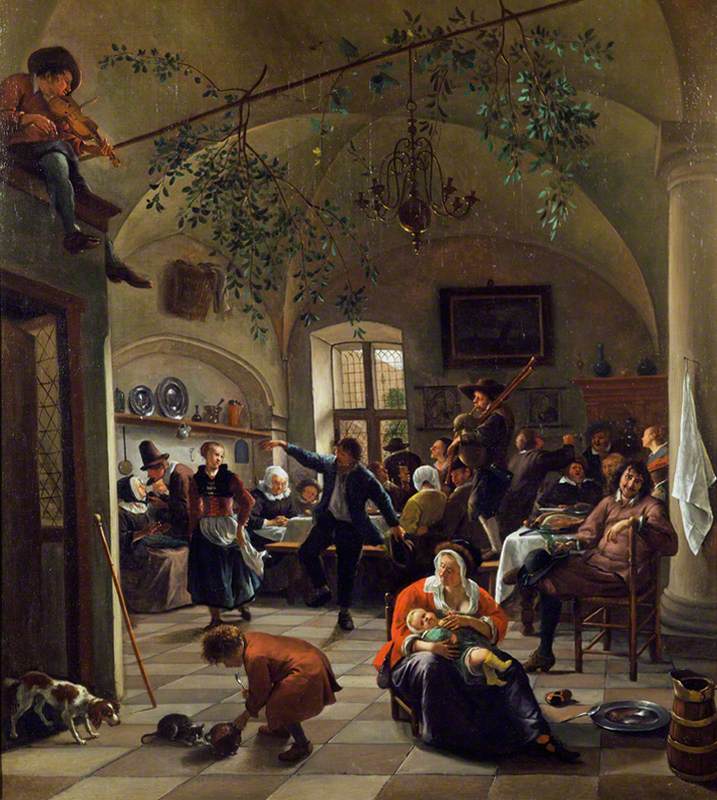 The art of alcohol
The art of alcoholMolly Tresadern
-
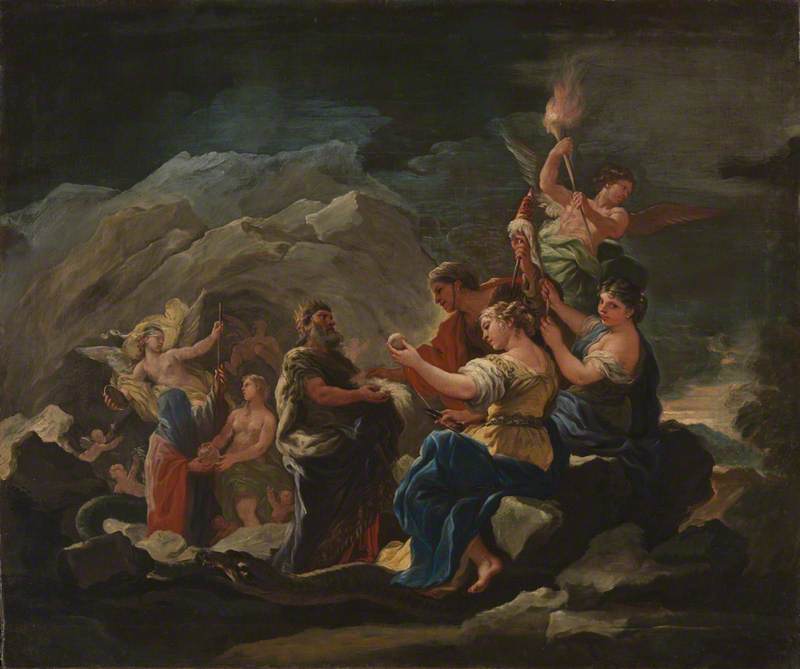 Luca Giordano: fame and fortune in Baroque Europe
Luca Giordano: fame and fortune in Baroque EuropeJonathan Hajdamach
-
